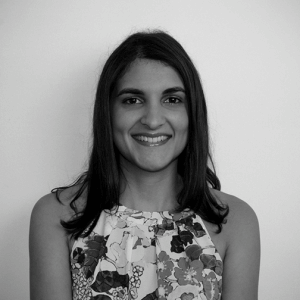The Philosophy of Language: What Is It?


Written and verified by the philosopher Maria Alejandra Morgado Cusati
Philosophy of language is the branch of philosophy that studies language from a general and fundamental perspective, addressing questions such as the nature of language, its relation to thought and the world, its use and its limits, as well as aspects related to translation and interpretation.
Because its approaches are more conceptual than empirical, the philosophy of language is distinct from linguistics. Moreover, linguists usually study a language for descriptive purposes, analyzing its forms, levels, and functions. Philosophers, on the other hand, adopt a more abstract approach that’s more detached from a practical description.
What is language?
To understand what the philosophy of language is, we must first define what’s meant by “language.” This is a system of signs through which individuals communicate. These signs can be sonorous (such as speech), corporeal (such as gestures), or graphic (such as writing).
However, the use of language in human beings is quite remarkable, since we are the only beings in the world with the capacity to express ourselves through articulated language.
Moreover, language in human beings has a variety that allows the following:
- It allows human thinking to be complex.
- Langauge allows us to describe the past or speculate about the future, thus deliberating and planning in light of one’s beliefs.
- It allows us to imagine abstract objects, events, and states of affairs, and is thus intimately related to intentionality.
- It helps us share information and communicate our beliefs, speculations, attitudes, and emotions.
- Language helps us to create the human social world by framing people in a common history and life experience.
Moreover, language is an instrument of understanding and knowledge. For example, the specialized languages of mathematics and science enable humans to construct theories and make predictions about matters they would otherwise be unable to address.

We think you may be interested in reading this, too: What is Aesthetics in Philosophy and What Does it Study?
A brief history of the philosophy of language
Language is a fundamental aspect of the human species and its development. That’s why it’s been approached by philosophy from various angles since ancient times.
Ancient philosophy
In the West, the investigation of language dates back to the 5th century B.C. with Socrates, Plato, Aristotle, and the Stoics. For example, in the dialogue Cratylus, Plato questioned whether the names of things were determined by convention or by nature.
In this case, he was against conventionalism, for this meant that anything could be conventionally named by any name.
For his part, Aristotle was interested in questions of logic, categories, and the creation of meaning. He separated things into categories of species and genera. He thought that the meaning of a predicate was established through an abstraction of the similarities between various individual things. This theory was later called nominalism.
Medieval philosophy
For their part, medieval philosophers were very interested in the subtleties of language and its use. For many scholars, this interest was triggered by the need to translate Greek texts into Latin.
St. Augustine, for example, proposed that a symbol is a material reality that evokes the understanding of a foreign reality. Thus, the linguistic symbol is constituted by an intrinsic union of sound and meaning.
Considering this Augustinian position – which is very similar to that established by Plato – it could be assumed that there’s a direct connection between a symbol and the thing it represents.
Modern philosophy
Although language was approached long before modernity, it was not until this era that it began to arouse greater interest. This gives rise to two different approaches to the understanding of language. According to the Canadian philosopher Charles Taylor, these are designation theory and constitutive theory.
On the one hand, designation theory conceives language as an instrument that allows us to designate things and ideas. Therefore, this approach adopts an atomistic stance on language, emphasizing the individual’s relationship to words. The most prominent representatives are Thomas Hobbes (1588-1679), John Locke (1632-1704), and Etienne Bonnot de Condillac (1714-1780).
In contrast, the constitutive approach conceives language as something prior to individuals, which constitutes the world they inhabit and which expresses and transforms their ways of being. In this sense, it develops a holistic view in which language predefines the conditions of existence of human beings and whose adequate understanding is not reached from the actions undertaken by individuals.
The main representatives of the constitutive current are Johann Georg Hamann (1730-1788), Johann Gottfried Herder (1744-1803), and Wilhelm von Humboldt (1767-1835).
Like this article? You may also like to read: Juan Luis Vives: A Spanish Philosopher Who Wanted to Help the Poor
Contemporary philosophy
The two approaches mentioned above will develop in parallel until the 20th century. From then on, the constitutive theory of language began to gain more relevance.
In particular, this occurred thanks to the birth of modern linguistics and Ferdinand de Saussure (1857-1913). It also occurred also thanks to the contributions of Gottlob Frege (1848-1925), the referent of modern logic and the distinction between meaning and reference.
Now, from these contributions, language began to take a central role in Western philosophy. In fact, the phrase “linguistic turn” is often used to refer to the growing and notable emphasis that contemporary philosophers placed on the subject.
Later, with the development of analytic philosophy, there was a growing interest in ordinary language. This implies a shift in the emphasis previously placed on formal languages.
Among the philosophers who dealt with ordinary language are G.E. Moore (1873-1958) and Ludwig Wittgenstein (1889-1951), who argued that ordinary language was the substratum for understanding formal languages. For the latter, the general phenomenon of language and its derivations is born of the ordinary.

Problems addressed by the philosophy of language
Some of the problems addressed by the philosophy of language are the following:
- The nature of language: Is language a rationally created entity to satisfy the psychological need to communicate with others, or is it an innate and specific ability to acquire a natural language?
- The problem of universals: Do universals have a direct connection with a real, abstract entity (the realist perspective), or do they only represent a collection of individual objects (nominalism)?
- Translation and interpretation: The impossibility of determining the meaning and reference of different languages based on a literal translation of words. After all, the linguistic system of a given community goes beyond the literal translation of each sign or expression.
The philosophy of language: A complex subject
To conclude, it’s pertinent to emphasize that the philosophy of language is a rather broad and complex branch that encompasses different perspectives around its study phenomenon.
However, this shouldn’t come as a surprise. After all, human language is a diverse entity that still hides many unresolved questions.
All cited sources were thoroughly reviewed by our team to ensure their quality, reliability, currency, and validity. The bibliography of this article was considered reliable and of academic or scientific accuracy.
- Rodríguez F. La filosofía del lenguaje: su naturaleza y su contexto. Diánoia [Internet]. 2003 [consultado el 22 de junio de 2022]; 48(59): 41-68. Disponible en: https://www.redalyc.org/pdf/584/58405002.pdf
- Trigos L. Significado e intencionalidad. Forma y Función [Internet]. 2010 [consultado el 22 de junio de 2022]; 23(1): 89-99. Disponible en: https://www.redalyc.org/pdf/219/21916690003.pdf
- Flórez J. El lenguaje en el pensamiento griego. Praxis Filosófica [Internet]. 2009 [consultado el 22 de junio de 2022]; 29: 41-60. Disponible en: https://www.redalyc.org/pdf/2090/209020352003.pdf
This text is provided for informational purposes only and does not replace consultation with a professional. If in doubt, consult your specialist.








